Quick Summary:
SSGs (Static Site Generators) are commonly used to produce static content websites that make it easy to consume your material. SSGs allows you to produce HTML pages ready for an HTTP server without server-side rendering. Any programming language, such as Ruby, Python, JavaScript, or Java, can be used to construct your application. This blog post will give you an overview of static site generators, and the Best Reactjs Static Site Generators for 2024.
Web development has progressed tremendously over time. As a result, the constraints that existed previously are no longer applicable. Utilizing one of the Reactjs Static Site Generators, web developers may build a website rapidly and easily using a variety of frameworks, tools, and technologies.
The use of a static site generator is growing in popularity. The procedure is also simpler, as it eliminates the need to rely on databases or other external data sources. In addition, to being extremely simple to use they come with built-in security features.
SSG adoption is increasing “in general by 2x year over year,” according to Web Almanac. In 2019, 0.4 percent of mobile sites and 0.3 percent of desktop sites were used. By 2020, the percentages had nearly doubled, with 0.6 percent on mobile and 0.7 percent on desktop. They expanded again in 2021, with 1.1 percent of mobile sites and 0.93 percent of desktop sites.”
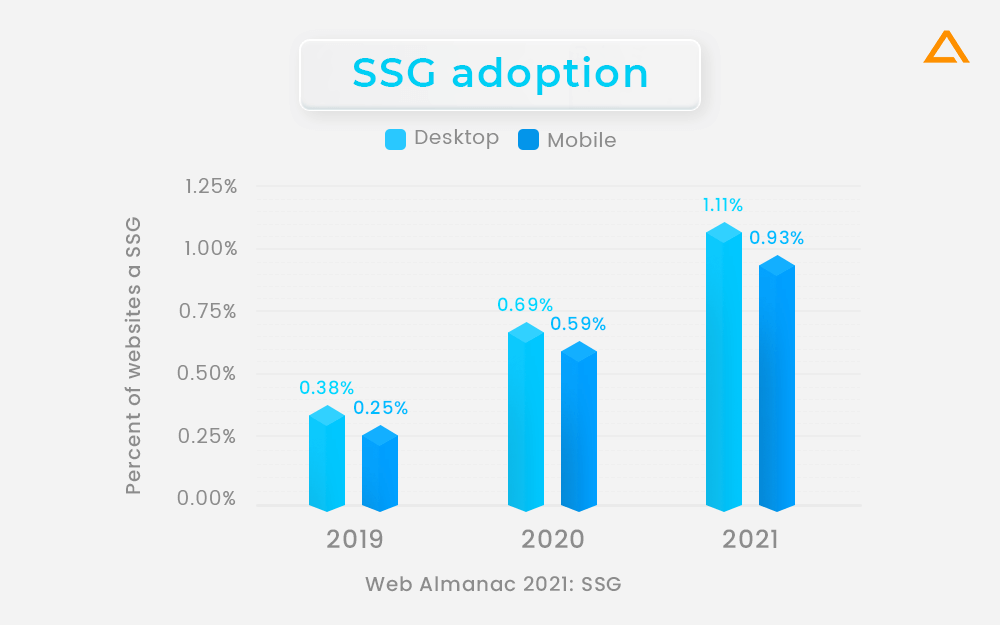
What are Static Site Generators (SSGs)?

There are a few other ways of website building, but we’ll focus on the two most common ones here. There is a classic monolithic approach and a non-monolithic approach, often known as headless architecture or JAM stack.
The typical monolithic approach necessitates using a web application stack that includes the operating system, web server, database, and script interpreter. It’s a collection of tools that work together to create a website, including a content management system. WordPress is a wonderful example.
While the headless technique separates the front-end and back-end and gives you two different sections with a flexible environment for constructing websites, it decouples the presentation layer and database layer.
On the other hand, Static Site Generators do not require a database or other data sources to create the site. When a page is requested on a typical website, the server produces the view on demand.
It’s a lot easier with SSG. The page is rendered at construction time by the static site generator. Put another way. The react js static site generator pulls a page from a CDN that has already been constructed and serves it to visitors.
Furthermore, react static site creation renders the page at the time of development. Another way, SSG gets a pre-built page from a CDN and offers it to the user whenever they want it. SSGs can also leverage a database, a REST API, Markdown files, or other resources to create a site.
Simply put, React Static Site Generators adhere to this pattern:
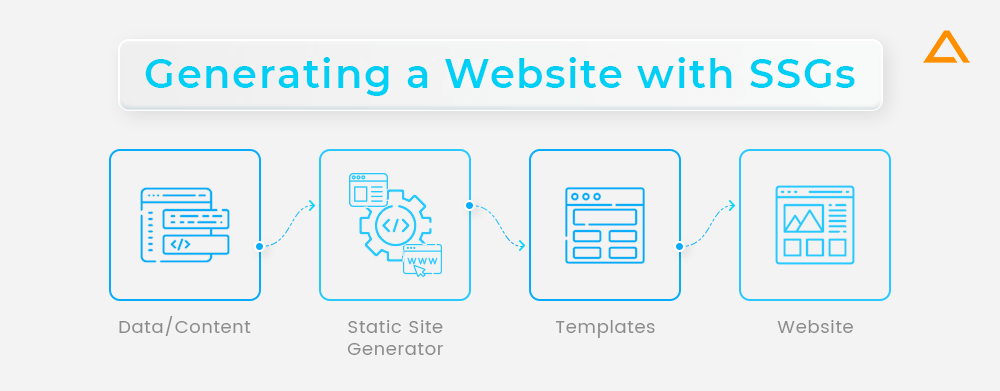
In a word, everything of your information and data is run through a reactive static site generator and template to produce completely functional websites. There is no requirement for a database or a server. Reactjs Static Site Generators, as the name says, produce static pages quickly and easily. These static site generators for react comes handy when you have a lot of fixed features on your websites, such as layout, themes, and photos.
LookinG for React developers to hire?
Get in touch to develop highly scalable web app project.
Advantages & Disadvantages of React Static Site Generator
There are many benefits of using the Best React Static Site Generator. Some of them are as follows:
Advantages
- JAMstack Ready
- Better Performance
- Speed
- Security & Reliability
- Dynamic Content
- Cost-Effective
- Flexibility & Scalability
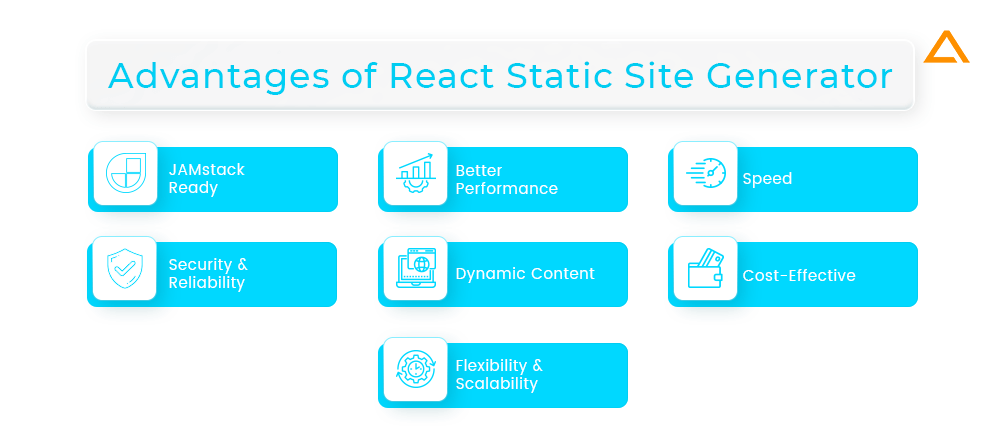
Disadvantages
- Steep learning curve
- Tough file management
- Extended build time

Also Read: How to Secure ReactJS App?
Things to Keep in mind while Choosing an SSG for Your Website
It’s not easy to pick the proper SSG for your website. It depends on several factors. It’s not smart to employ a static site generator just because they’re popular. If you choose SSG, you must carefully analyze all the advantages and disadvantages.
And there are numerous aspects to investigate. However, the following are the most important items to consider:
The key goal of a website: Is your site’s main purpose of giving merely static material, or is it more of an application with numerous functionalities, or is it a multi-page site?
Tools & Frameworks used: Your development team’s tools and web frameworks (if you have one)
Complexity: Your team will require specialized tools and templates, which may or may not be appropriate for the type of site you want to build
Features: You’d like to include
Aimed Industry: You’re looking for a specific industry and specialty
Business Requirements: As a business owner, your business needs and personal preferences, as well as other business-specific considerations
Failure to take the right approach to web development can cause more harm than good, resulting in poor website performance, a poor user experience, and a decreased likelihood of attracting new consumers. If you’re unsure which solution is best for your company, choose to Hire web app development company.
Best React Static Site Generator
Although by no means these are the only static site generator for react the market, they are by large communities and lots of useful resources. Furthermore, each of these Best ReactJS Static Site Generators for react can be customized and extended using plugins and extensions, allowing you to cover most or all of your requirements. So, let’s take a look at them respectively:
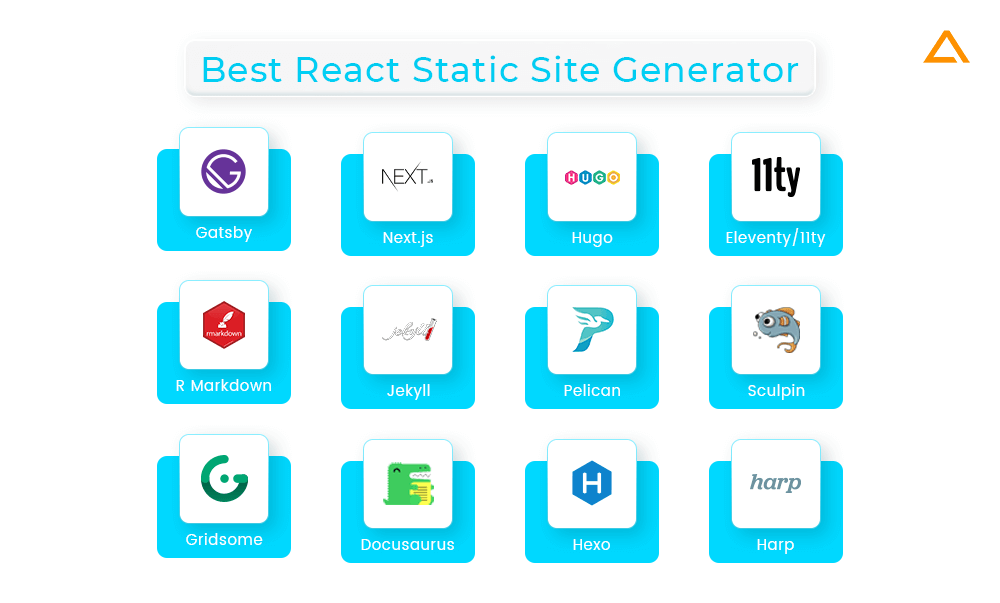
Gatsby
Perfect for: Jamstack newbies and developers that wish to work in a more flexible environment.
Github Stars: 52.6K | Forks: 10.2K | Language: JavaScript | Template: React | License: MIT
Installation Command: npm install -g gatsby-cli
The main ReactJS website uses Gatsby, a prominent static site builder. Gatsby is a free and open-source game that was created in 2015. It works well with the React ecosystem and extensively uses GraphQL, a powerful plugin for third-party services and APIs.
Gatsby comes with several beginning templates and follows the PWA principles. If you use Gatsby appropriately to build your website, it will load quickly. It’s a modern front-end framework that relies on static files to speed up page loading.
Features
- Effective code splitting
- Scalability
- Inlining of critical assets
- Excellent documentation
- Heavy image optimization
- Quick Performance
- Smart Pre-loading
- Security
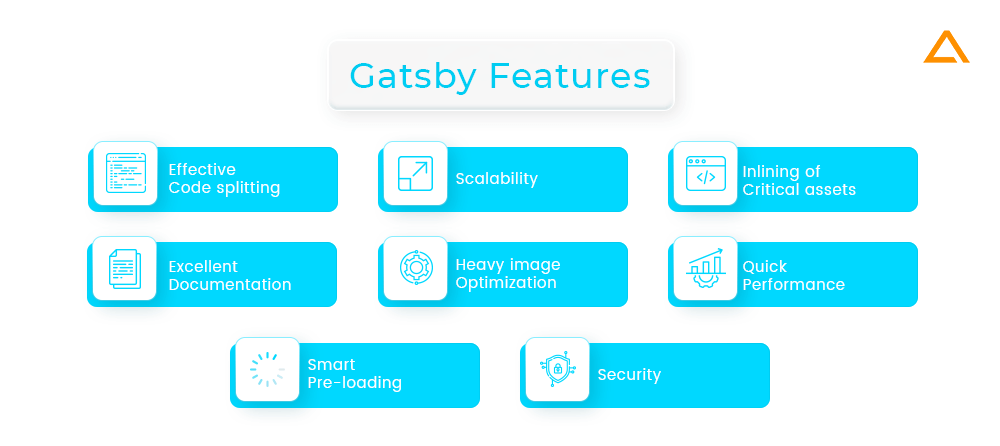
Next.js
Perfect for: Building hybrid webpages and web applications
Github Stars: 84.1K | Forks: 17.7K | Language: JavaScript | Template: React | License: MIT
Installation Command: npm install next react react-dom
Another very popular react static site generator based on react and javascript is Next.js. Provided by ZEIT, it allows you optionally to use server rendering for some routes in your sites if necessary and can preview.
With the use of the next.js server, rendering react applications has never been easier. Also, you don’t require any pre-requisites like webpack configuration or node.js server.
Features
- Faster Builds
- Built-in CSS support
- Faster Startup
- Improved Accessibility
- Flexible Redirects & rewrites
- Incremental Static Regeneration
- Automatic Webfont Optimization
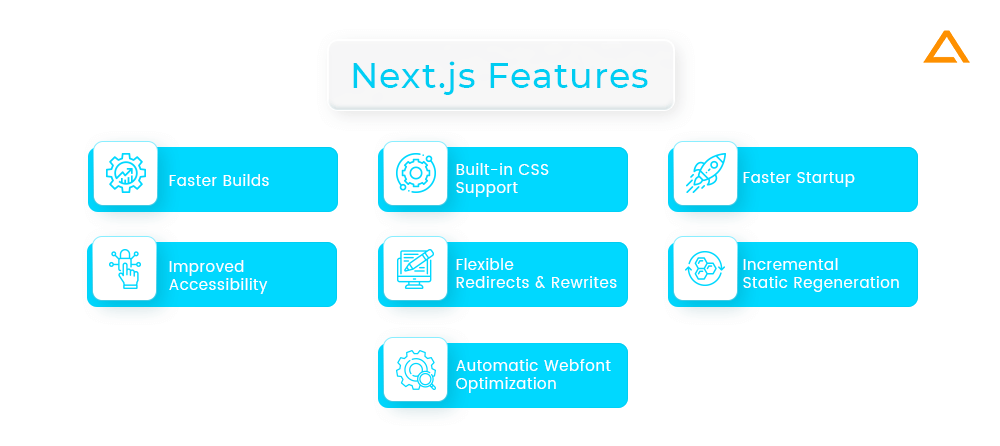
Hugo
Perfect for: Creating a website quickly and efficiently.
Github Stars: 84.1K | Forks: 17.7K | Language: Go | Template: Go | License: Apache 2.0
Using a Windows machine, you can use chocolatey for package management. For example, you can install Hugo with the following one-liner.
Installation Command: choco install hugo -confirm
HUGO is a traditional open-source SSG built-in GO created back in 2013. It has more than 300 themes. The best thing about HUGO is that it takes less than one millisecond for a page to load, making users get an entire website within one second. Hugo supports Windows, Linux, FreeBSD, macOS, and other operating systems.
Features
- Swift build time
- Cross-platform
- Renders change with LiveReload
- Powerful theming
- Anywhere hosting
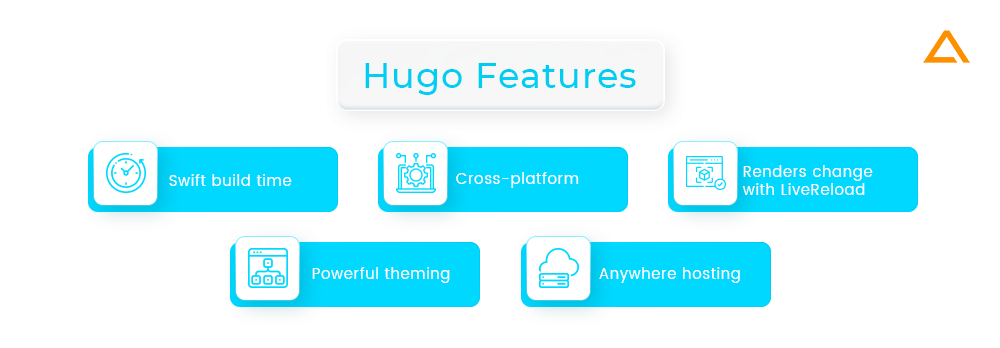
Eleventy/11ty
Perfect for: Building hybrid webpages and web applications
Github Stars: 11.7K | Forks: 356 | Language: JavaScript | Template: Liquid, Nunjucks, Handlebars, Mustache, EJS, Haml, Pug, JavaScript, HTML, Markdown | License: MIT
Installation Command: npm install @11ty/eleventy --save-dev
Many static site generators can be intimidating if you don’t have a technical background, but Eleventy strives to break the mould by focusing on ease of use. Eleventy isn’t lacking in features because of its simplicity. Eleventy also offers custom file extension handlers and the ability to add plugins in a server-free environment. Using this software, you may mix ten different template languages when building webpages, ranging from HTML and Markdown to Javascript and Mustache. It’s also a free product, so there’s no reason not to start, particularly if you want to create multilingual websites.
Features:
- Multiple template languages are supported (HTML, Markdown, JavaScript, Mustache, .ejs files, and more)
- Pre-rendered templates ensure that your website runs smoothly
- Eleventy can be used without a server
- Within the templates, data migration, adaptation, and configuration are simple
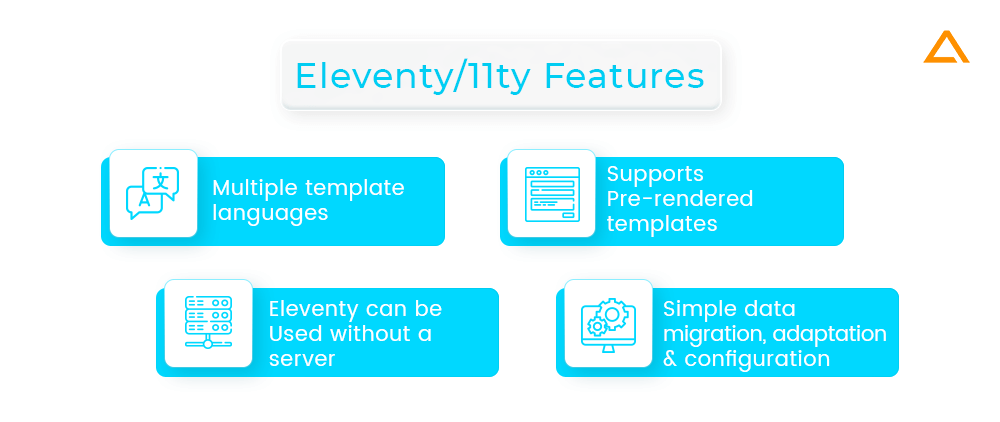
Also Read: React State vs Props
R Markdown
Perfect for: Creating high-quality documents, reports, presentations, and dashboards for the site.
Github Stars: 2.4K | Forks: 921 | Language: R | Template: R, R Markdown | License: GPL-3.0-or-later
Installation Command: install.packages("rmarkdown")
R markdown is a library for R programmers that allows them to display data analysis results. It combines the ability to write and execute code with generating output reports. For instance, HTML allows for the eventual presentation of work outcomes as a web page.
R Markdown is a framework for interactive data analysis preparation connected with the IDE “Rstudio.” This SSG enables you to turn your data analysis into interactive sites that a broad audience can access.
Features
- Reproductivity is simple
- Contains both the calculation code and the descriptions
- The source code generates the results automatically
- HTML, R, Python, and SQL are among the languages used
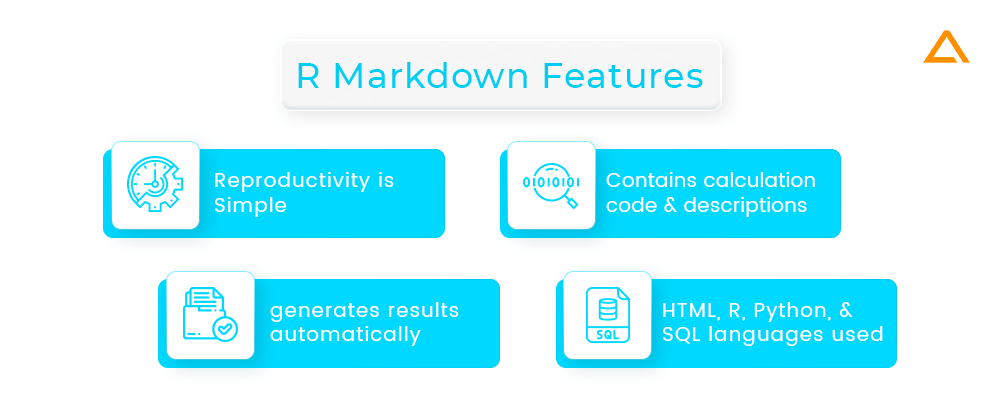
Jekyll
Perfect for: Lightweight and intuitive website building.
Github Stars: 44.4K | Forks: 9.8K | Language: Ruby | Template: Liquid | License: MIT
Installation Command: gem install jekyll bundler
Jekyll is a Ruby-based SSG that seeks to make the development process easier for developers. It’s a good option for inexperienced developers because it allows you to construct websites rapidly while expanding your skills.
Features
- Hosting is provided for free
- Jekyll is a simple, lightweight static generator
- A strong community supports consistent growth and adequate maintenance

Pelican
Perfect for: Quick Development of a simple website
Github Stars: 44.4K | Forks: 9.8K | Language: Python | Template: Jinja2 | License: AGPL-3.0-only.
Pelican is a static site generator based on Python that builds static sites with many scalability options in any direction you want to go with a little extra code. It can help with the creation of non-blogging websites. There is no need for a database or server-side logic. It’s a simple tool that uses command-line commands to generate content from raw data. Pelican features an easy-to-use UI that includes version control and webhooks. Furthermore, because the output is purely static, it can be hosted anywhere.
Features
- Use of reStructuredText or Markdown syntax
- It’s simple to host completely static output anywhere
- Jinja templates for customized themes
- Supports multiple languages
- RSS/Atom feeds
- Syntax highlighting in the code
- Import data using WordPress, RSS feeds, and other services
- The plugin system is modular, and there is a plugin repository to go with it
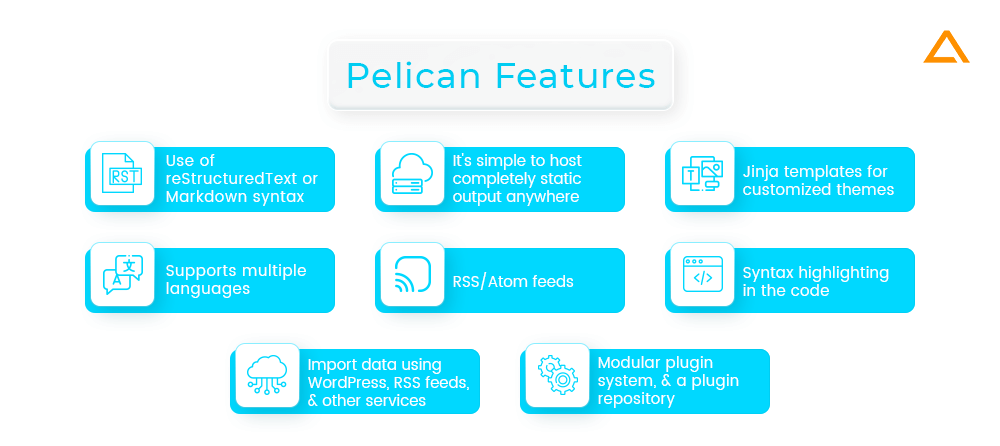
Also Read: Latest React 18 Features & Changes
Sculpin
Perfect for: Users knowing PHP programming language for web programming
Github Stars: 1.4K | Forks: 187 | Language: PHP | Template: Twig | License: MIT
Installation Command: for the installation process, you can visit here
Sculpin is a PHP-based static site generator that can be useful for users transitioning from WordPress. It uses the Twig templating engine to transform Markdown files into static HTML files.
Features
- Beginner-friendly
- Simple to use
- Twig is an easy-to-use, extendable, compact, versatile, and well-documented templating engine
- A built-in ‘Composer’ manages the versions of dependent libraries automatically
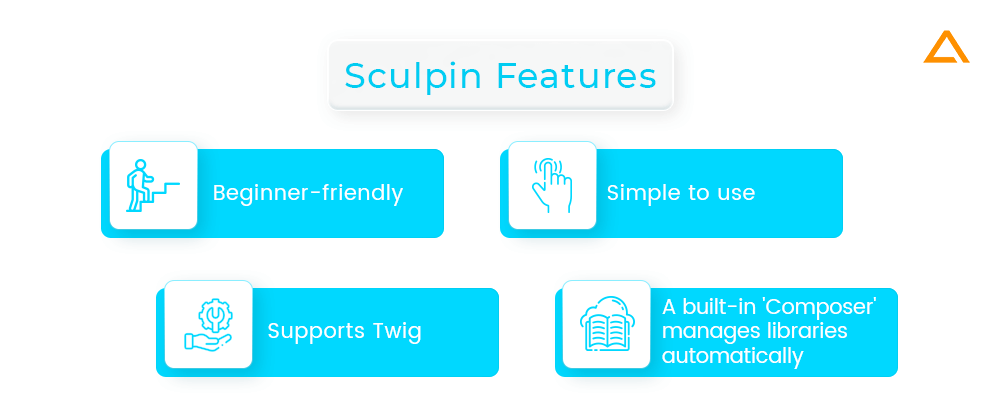
Gridsome
Perfect for: Fast and well-performing websites
Github Stars: 8.1K | Forks: 485 | Language: JavaScript | Template: Vue | License: MIT
Installation Command: npm install --global @gridsome/cli
Gridsome SSG is built in JavaScript for the Vue.js framework, whose main goal is to create pages at breakneck speed. Gridsome allows you to access many data sources simultaneously, such as a CMS, importing data from files (JSON, Markdown), or via an API. Implements cutting-edge technology (GraphQL & all the power of Node.js)
Working on a local project enables fast hot-reloading after each update. In addition, because all activities are conducted directly on files, you don’t require any external servers or databases to maintain the project.
Features
- Easy Installation
- Generation of static PWAs
- SEO-friendly

Also Read: Node js vs React
Docusaurus
Perfect for: Building rich-text websites and documentation
Github Stars: 32.1K | Forks: 4.6K | Language: JavaScript | Template: React, Markdown | License: MIT
Installation Command: npm init docusaurus@latest [name] [template]
Docusaurus is a tool that translates Markdown files (user-prepared material on which you should concentrate your efforts, rather than technical support for the publishing process) to HTML files that are ready to be published. It’s built with React, making it simple to tweak and extend the project’s layout.
Features
- Crowdin is used to prepare translations in over 70 languages
- Versioning of content is synced with project versions
- Algolia is used to search for dynamic material

Hexo
Perfect for: A lightweight tool in a simple environment for creating blogs
Github Stars: 34.5K | Forks: 4.3K | Language: JavaScript | Template: EJS, Pug, Haml, Swig, Nunjucks, Mustache, Handlebars, Twig, Marko| License: MIT
Installation Command: npm install hexo-cli -g
Another SSG on this list is hexo react static site generator is a basic and quick tool for the Node.js JavaScript framework. It’s easy to use since you can publish a site (for example, to GitHub or Heroku) with just one command, and it’s quick because its features allow you to produce hundreds of files in seconds. Hexo is quick, simple, and offers a pleasant development experience with plugins, themes, and simple deployment.
Features
- Creating at breakneck speed
- Most Octopress plugins, including GitHub Flavored Markdown, are supported
- Deploy to GitHub Pages, Heroku, and other services with a single command
- Extensibility is made possible with a powerful API
- Hundreds of plugins and themes

Harp
Perfect for: Building websites with built-in preprocessing and no need to work on configuration
Github Stars: 5K | Forks: 371 | Language: JavaScript | Template: EJS, Jade | License: MIT
Installation Command: sudo npm install -g harp
Harp is a maintenance-free SSG with built-in preprocessing for web server configuration. The code is automatically preprocessed and supplied as HTML, CSS, and Javascript to the browser. This allows you to concentrate on developing the code. Thanks to the pre-compilers, Harp is a strong SSG, simple and lightweight, and provides a configurable environment for constructing sites.
Features
- It’s simple to set up and utilize
- lightweight and quick
- dependable (clean URLs, intelligent path redirects)
- pre-processing built-in
- partial support and a first-class layout
- In production mode, there is built-in LRU caching
- Assets can be exported to HTML, CSS, and JS
- There are no construction phases or grunt tasks required
- it’s enjoyable to use
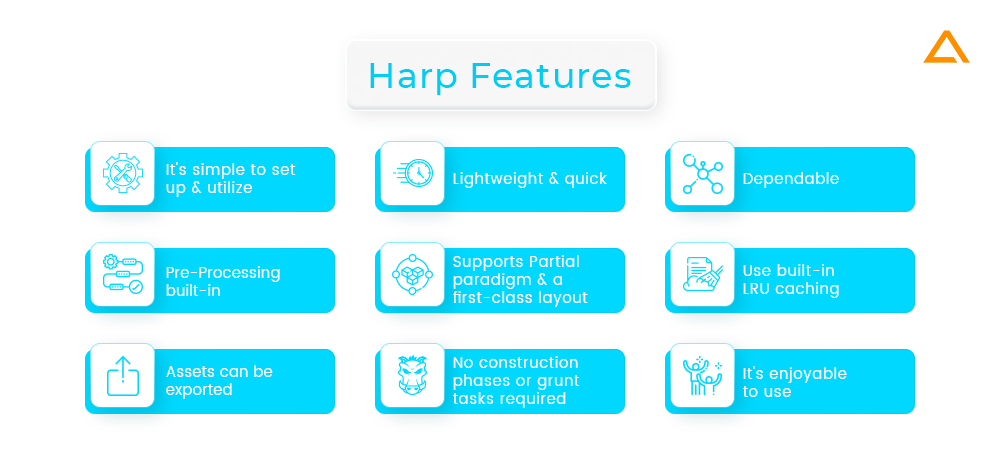
Wrapping Up!
So there you have it: the Best ReactJS Static Site Generators for 2024. Static site generators assist in the creation of appealing and distinctive websites. As a result, it’s an important aspect of web design.
React is the first choice for Static Site Generators and has dominated the market. However, each of the SSGs listed here has its own set of distinctive and useful features. So, when you’ve made a list of your priorities, choose one of these options based on your requirements.
have a unique app Idea?
Hire Certified Developers To Build Robust Feature, Rich App And Websites.
Also Check:
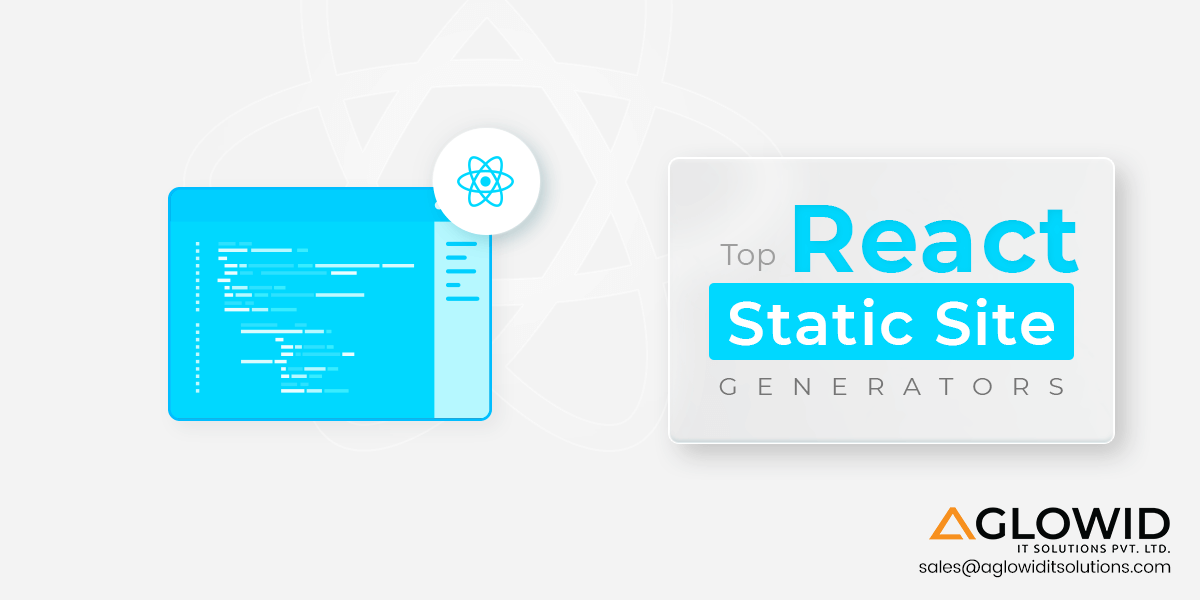




 Say
Say